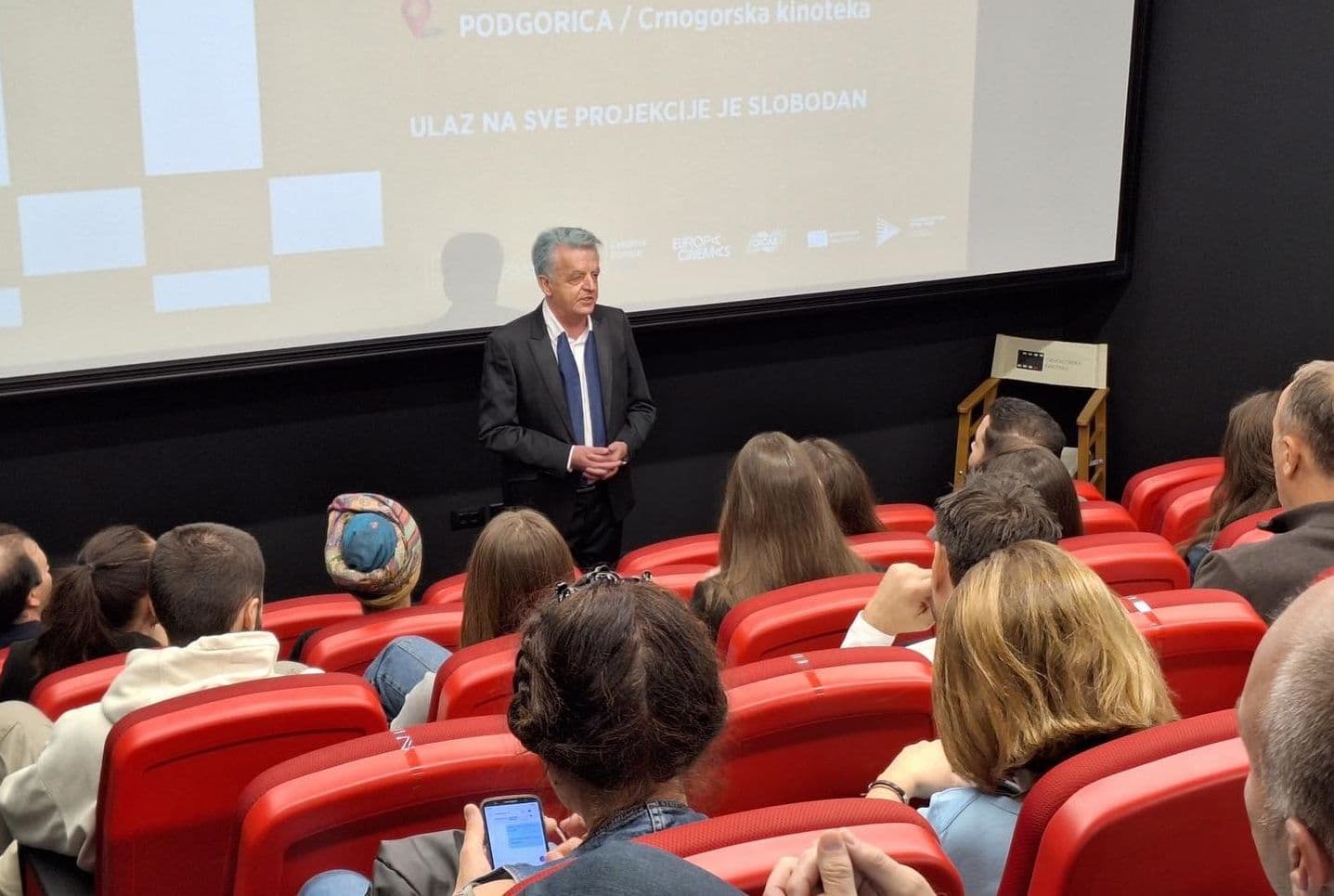Top Stories
Montenegro’s Film Institute Faces Scrutiny Over Questionable Contracts

Documents from the State Audit Institution regarding questionable contracts at the Montenegro Film Institute have been under the scrutiny of prosecutors for months, yet they have not led to any significant action. The audit identified potential systemic abuses, unsupported payments, and the disappearance of key documentation. Despite these alarming findings, relevant institutions have remained surprisingly inactive.
The Supreme State Prosecutor’s Office has transferred the matter to the Special State Prosecutor’s Office (SDT), but the SDT has not responded to inquiries from the news outlet Pobjeda even after two months. It remains unclear whether an investigation has been initiated, if evidence has been gathered, or if any parties involved have been interviewed. This gap leaves the public in the dark about accountability for the €17,850 paid under contracts with no documented work performed and missing agreements that the Film Institute claims are absent from its archives.
The State Audit Institution initiated a referral to the Supreme State Prosecutor’s Office after uncovering serious irregularities in the operations of the Montenegro Film Institute during 2023. The audit’s findings indicated a high risk that employees were compensated for additional work without fulfilling contractual obligations.
The contracts in question were predominantly related to agreements made by former director Goran Bjelanović with employees, including a particularly controversial contract with Nataša Kovač-Martinović, and another with current Minister of Labour and Social Welfare, Naida Nišić. The audit revealed that the Film Institute failed to provide documentation verifying that any work was completed as required by law. Despite this, payments totaling €17,850 were disbursed throughout 2023.
In response to the audit findings, the Supreme State Prosecutor’s Office indicated that they had forwarded the report to the SDT, but they did not clarify the status of the investigation or any plans to inform the public. Alarmingly, the SDT has not responded to inquiries from Pobjeda, raising concerns about the transparency of the process.
Cultural Minister Tamara Vujović claimed that the Ministry had identified irregularities and taken measures in 2023, yet documents obtained through freedom of information requests suggested otherwise. The Ministry’s officials acknowledged certain oversights but failed to impose any specific sanctions to prevent the continuation of these practices. Notably, the Council of the Institute was not holding regular meetings, and the appointment of Nataša Kovač-Martinović to the Council was found to be procedurally flawed.
Further complicating matters, the Ministry’s control report highlighted discussions between Bjelanović and his staff about various administrative issues, rather than addressing the serious findings of the audit. Despite acknowledging certain irregularities, the Ministry did not take decisive action against leadership at the Film Institute.
In June 2024, Bjelanović was dismissed, but the timing raised questions. His removal occurred 13 months after the audit and ten months before the findings were made public, suggesting that the decision was not directly linked to the audit’s concerns. The official reason for his dismissal was his failure to submit a timely work program for the Institute, rather than the financial irregularities outlined in the audit.
The case of the Montenegro Film Institute illustrates a chronic issue within institutions that seem to act selectively and sluggishly. While auditors have pointed out possible abuses and the Ministry has acknowledged irregularities, concrete measures remain elusive. The prosecutor’s office has yet to communicate any basic information about the status of the case, even as crucial contracts vanish from the archives and payments continue without proper documentation.
As the public awaits clarification from the SDT, the Montenegro Film Institute exemplifies the risks associated with ineffective oversight. The current director, Pavle Simonović, took office in June 2024 and has not responded adequately to requests for information regarding the contracts in question.
Despite the promise of transparency, Simonović’s administration has faced criticism for ignoring legal obligations and failing to provide necessary documents. This lack of action raises suspicions that the current management may be employing silence and legal non-compliance as a strategy, mirroring the behavior of their predecessors.
The situation remains unresolved, with public accountability at stake. Whether or not the Special State Prosecutor’s Office will initiate proceedings to clarify the spending of public funds remains to be seen. For now, the Montenegro Film Institute stands as a clear example of what happens when oversight mechanisms exist only on paper, allowing for a culture of impunity to flourish.
-

 Health3 months ago
Health3 months agoNeurologist Warns Excessive Use of Supplements Can Harm Brain
-

 Health3 months ago
Health3 months agoFiona Phillips’ Husband Shares Heartfelt Update on Her Alzheimer’s Journey
-

 Science2 months ago
Science2 months agoBrian Cox Addresses Claims of Alien Probe in 3I/ATLAS Discovery
-

 Science2 months ago
Science2 months agoNASA Investigates Unusual Comet 3I/ATLAS; New Findings Emerge
-

 Science1 month ago
Science1 month agoScientists Examine 3I/ATLAS: Alien Artifact or Cosmic Oddity?
-

 Entertainment2 months ago
Entertainment2 months agoLewis Cope Addresses Accusations of Dance Training Advantage
-

 Entertainment5 months ago
Entertainment5 months agoKerry Katona Discusses Future Baby Plans and Brian McFadden’s Wedding
-

 Science1 month ago
Science1 month agoNASA Investigates Speedy Object 3I/ATLAS, Sparking Speculation
-

 Entertainment4 months ago
Entertainment4 months agoEmmerdale Faces Tension as Dylan and April’s Lives Hang in the Balance
-

 World3 months ago
World3 months agoCole Palmer’s Cryptic Message to Kobbie Mainoo Following Loan Talks
-

 Science1 month ago
Science1 month agoNASA Scientists Explore Origins of 3I/ATLAS, a Fast-Moving Visitor
-

 Entertainment4 months ago
Entertainment4 months agoMajor Cast Changes at Coronation Street: Exits and Returns in 2025









